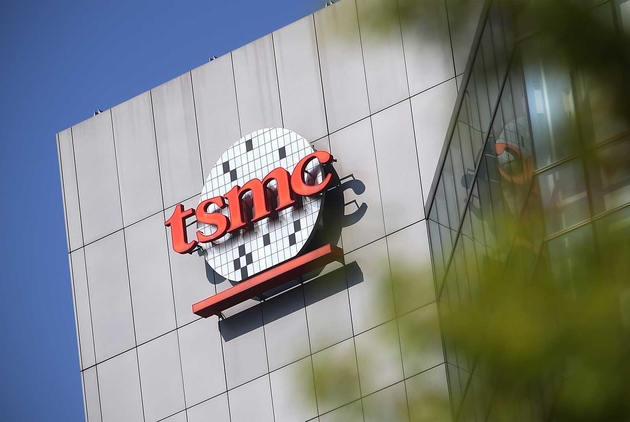Amidst Market Pessimism, Why Are Global Investors Bullish on TSMC?

Source:Shutterstock
As the COVID-19 coronavirus pandemic continues to spread worldwide, major tech companies such as Apple have lowered their financial forecasts, and Huawei has begun slashing 5G smartphone order forecasts. In spite of the continuing bearish outlook, why has Taiwan Semiconductor (TSMC) stock held above NT$300 (US$10) per share? And how do global investors see TSMC’s prospects going forward?
Views
Amidst Market Pessimism, Why Are Global Investors Bullish on TSMC?
By Hannah Changweb only
As the coronavirus pandemic worsens, end market demand remains in the doldrums. Nevertheless, one foreign investment firm analyst observes that although end-user business such as smartphone orders have been impacted, “to my knowledge, orders for 5G base stations and Internet communications equipment are on the rise. Taiwan Semiconductor (TSMC) customers run the gamut, so that it may have some growth here and some stagnation there. And orders are not as bad as those on the outside imagine, with the mid- and long-term looking good,” he offered.
Despite the worldwide spread of the pandemic, the latest early March reports from investment houses like Bernstein, Morgan Stanley, and Credit Suisse show target prices remain high at between NT$330 and NT$368. This is because of TSMC’s diverse customer profile and advanced technology that cannot be replaced.
Another foreign investment bank analyst shared that TSMC’s market forecast department issues monthly market forecast simulation reports, and although it took the impact of the coronavirus into account for the first time in its February report, it concluded that the effects would be marginal.
“TSMC has certainly been affected by coronavirus, but some businesses have grown while others have shrunk,” offers Charlie Chan, semiconductor industry analyst for Morgan Stanley Securities. Accordingly, he remains bullish on TSMC’s mid- to long-term performance, anticipating that TSMC’s capital expenditures will remain on track this year. And due to the diversified nature of the company’s clientele, confidence in TSMC’s mid- to long-term prospects is strong.
Huawei Slashes March Smartphone Chip Orders, Impacting TSMC’s Q2 Production Capacity
Recently, TSMC stock prices have fluctuated greatly, largely due to the spread of the coronavirus, Apple’s downward adjustment of its Q2 forecast, as well as the Trump administration’s plans to revise oversight regulations to cut suppliers off from providing chips to Huawei. These three main factors contributed to a stock price drop to close to NT$310 per share, the lowest of the year so far, with a single-day loss in market value exceeding NT$8 trillion on March 2.
In a March 5 report, Morgan Stanley stated that Huawei has initiated a new round of order cuts, but that the impact on TSMC is expected to be limited. The report noted that Huawei has undertaken a second wave of cancellations of smartphone orders due to the spread of the coronavirus and lack of Google GMS support. Accordingly, Huawei has begun adjusting inventory across sales channels, having cancelled 4G smartphone orders in early January, while starting to lower the number of 5G smartphone orders since the beginning of March.
The report notes that the inventory of Huawei smartphones across distribution channels is somewhere between 40 and 50 million units, so the estimated single quarter impact on TSMC is around 20,000 wafers, affecting TSMC’s Q2 production capacity of 7nm chips by around 20 percent. Moreover, a portion of 7nm + EUV production cannot be apportioned to other customers.
Further, in the smartphone handset realm, orders for MediaTek’s 5G system chips and image sensors from Will Semiconductors of Shanghai have also been adjusted downward. Including order cuts from other Huawei smartphone suppliers, the overall impact on TSMC could amount to around five percent of total sales.
“Huawei handset orders have been revised downward for the second through fourth quarters of this year. This indicates poor demand, and due to the additional factor of the pandemic, the outlook for the expansion of 5G applications over the short term does not look good. China’s intended strong push for 5G has been thrown off course by the pandemic. So there have been major cuts in orders for Huawei 5G handsets, while MediaTek has also begun to lower its forecasts,” relates Charlie Chan.
A report from Credit Suisse holds that the coronavirus outbreak has suppressed the increase of 5G and overall smartphone sales volume, and Qualcomm’s orders with TSMC for 2021 are also being reduced. These factors, combined with the US embargo on Huawei exports, are sure to impact TSMC’s 5nm and 7nm profits, thus putting a damper on expectations for TSMC’s growth.
The Credit Suisse report also lowers its forecast for worldwide 5G handset sales from 250 to 232 million in 2020, and from 500 million in 2021 to 487 million units. Estimating TSMC’s revenue from orders in this sphere based on these projections, annual growth will reach 18 percent as opposed to the previously projected 21 percent, and next year will shrink from nine percent to just five percent.
As Charlie Chan describes it, “5G smartphones are not necessities, so orders are sure to be cut first.”
Remote Video Conferencing, Cloud Computing Drive Demand for HPC and Internet Communications Equipment
On the other hand, the Morgan Stanley report offers that the pandemic has stimulated the demand from remote videoconferencing, 5G infrastructure, e-Sports, and healthcare, providing a window of opportunity for manufacturers in sectors such as internet communications and data centers.
The increased demand for communications base station equipment, medical-use chips, and gaming display chips brings support for TSMC’s high-speed computing business, “So that the impact on TSMC is not as great as imagined. Although the mobile device business is affected, other businesses such as high-speed computing and the Internet of Things are on the ascent,” explains Charlie Chan.
Chan offers that customers such as Apple, AMD, nVidia, and Qualcomm all rely on TSMC’s manufacturing, and that even in China - heavily beset by the coronavirus - foreign investors remain sanguine about projects connected to government budgets. “When private consumption is sluggish, the demand for stocks related to state infrastructure and government tenders increases. And China Mobile and China Unicom 5G base station tenders have not only been initiated on schedule, but have been accelerated,” he adds.
The Credit Suisse report adds that HPC high-speed computing and other businesses remain stable, as TSMC benefits from AMD’s increasing market share, accelerating mobile infrastructure, the quickening pace of AI development, growth in Chinese Internet server and Intel’s non-CPU business. This year and next, revenue from HPC business is forecast to maintain 24 percent and 10 percent annual growth, respectively.
2020 Revenue, Profitability to Maintain Double-digit Growth
In the first quarter of this year, at least a dozen foreign investment firms have issued analyses of TSMC’s performance and prospects. Among these, Bernstein, JPMorgan Chase, and Credit Suisse have each issued at least two reports, keeping close watch on supplies between TSMC and its customers.
Surveying foreign investment firms’ reports on TSMC in February and March, while dim views of high-tech manufacturers are common, most are positive about TSMC’s market going forward, with JPMorgan Chase placing its target price at a high of NT$370, and Bank of America coming in the lowest at NT$326.5, while Morgan Stanley was also neutral to positive, maintaining a target price of NT$368.
Looking at the overall market, Bernstein was relatively optimistic, taking the position that the COVID-19 outbreak is only temporary. Based on this view, the firm predicts only a single-digit impact on wafer contract manufacturing, and higher growth over the same period last year even if the market is impacted.
Although Credit Suisse is one of the few foreign investment firms to lower its target price for TSMC, in its report it still predicts double-digit growth in both revenue and profitability for TSMC this year. Moreover, it posits that even if mobile phone-related orders are impacted, high-speed computing, IoT, and automotive electronics will show appropriate growth, so that TSMC’s rating will still outperform the general market.
Have you read?
♦ Civic Tech Versus COVID-19: Online Map and Reservation System Help Fight the Virus
♦ Where is Globalization Headed Amid COVID-19 Epidemic?
♦ How Taiwan Fights COVID-19
♦ Desperation in Wuhan
♦ Apple Supply Chain Disrupted by Novel Coronavirus
♦ Coronavirus to Take Bite out of GDP - Can Taiwanese Companies Cope?
Translated by David Toman
Uploaded by Sharon Tseng












